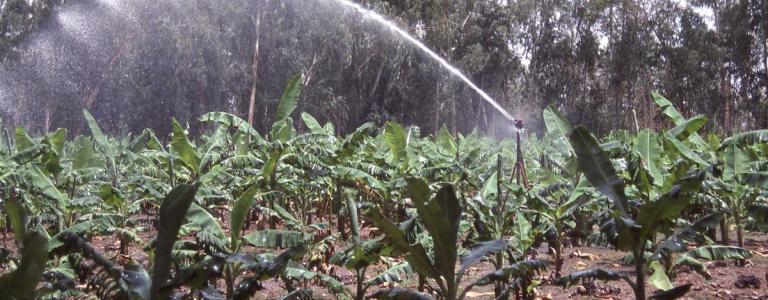[EN/FR] Webinar: Can an agricultural investment code contribute to sustainable development: the case of Burkina Faso
Speakers will discuss the history, process and objectives that led to the adoption of the Code. They will also highlight the content of the Code and its implications for sustainable development.
Promoting the creation of an enabling and secure environment for agricultural investment has guided the Government of Burkina Faso to create an agricultural investment code. Adopted in June 2018, the code aims to promote productive investment in livestock, fisheries, forestry and wildlife management.
***Français ci-dessous***
Join us on Tuesday, November 27, at 3:00 p.m. GMT, for a webinar on Burkina Faso's agricultural investment code and its contribution to sustainable development. The webinar will be in French only.
IISD has been working with the Ministry of Agriculture and Food Security, as well as other partners, on the development of the law since 2012. Read our blog on Burkina Faso’s agricultural investment code here.
Speakers will discuss the history, process and objectives that led to the adoption of the Code. They will also highlight the content of the Code and its implications for sustainable development.
Speakers :
- Mr Ouédraogo Abdelaziz, Director General for the Promotion of Rural Economy, Ministry of Agriculture and Water Management
- Mr Bouda Tasré, Director General of the National Society for Land Management and Rural Development
- Suzy Nikièma, International Law Advisor and Regional Coordinator Africa, IISD
- Mohamed Coulibaly, Legal and Agricultural Advisor, IISD
Webinaire: Un code d’investissement agricole peut-il contribuer au développement durable : le cas du Burkina Faso
Favoriser la création d’un environnement favorable et sûr pour les investissements agricoles a guidé le Gouvernement du Burkina Faso à adopter un code d’investissement agricole en juin 2018. Le code vise à promouvoir des investissements productifs dans l’élevage, la pêche, la foresterie et la gestion de la faune
Joignez-vous à nous le mardi 27 novembre, à 15h00 GMT, pour un webinaire sur le code d’investissement agricole du Burkina Faso et le lien avec le développement durable.
IISD a collaboré avec le Ministère de l’Agriculture et de la Sécurité alimentaire, ainsi que d’autres partenaires, à l’élaboration de la loi depuis 2012. Nous vous invitons à lire notre blog sur le Code d’investissement agricole du Burkina Faso disponible ici.
Les intervenants aborderont l'historique, le processus et les objectifs qui ont conduit à l’adoption du Code. Ils discuteront du contenu du Code et de ses implications pour le développement durable.
Intervenants:
- Mr Ouédraogo Abdelaziz, Directeur Général de la Promotion de l'Economie Rurale, Ministère de l'Agriculture et des Aménagements Hydrauliques
- Mr Bouda Tasré, Directeur général de la Société nationale de l'aménagement des terres et de l'équipement rural
- Suzy Nikièma, Conseillère en droit international et Coordinatrice régionale Afrique, IISD
- Mohamed Coulibaly, Conseiller Droit et Agriculture, IISD
Upcoming events
Building Bridges: The State of Nature-Based Investments
Join us for a panel at the Building Bridges conference in Geneva, Switzerland, to discuss the state-of-play of nature-based investments and the potential opportunities they present.
The Pivotal Role of Sustainability for Ukraine’s Reconstruction
This webinar, hosted by the International Institute for Sustainable Development and the Ukrainian Climate Office, will discuss how to incorporate sustainability into Ukraine's recovery and reconstruction plans and share recommendations for implementation.
Through Her Lens: Women leading change in sustainable agriculture and market inclusion
Despite the critical role that women play in agricultural production, they still do not have equal access to global agricultural supply chains on terms that benefit them.
A Municipal Perspective on the Value of Natural Infrastructure
This webinar will showcase examples the cost-effectiveness of natural infrastructure from a municipal perspective. Focusing on what municipalities need—what evidence and numbers they rely on, and what tools and planning processes are required to ensure that natural infrastructure is assessed alongside traditional infrastructure for cost-effectiveness.
